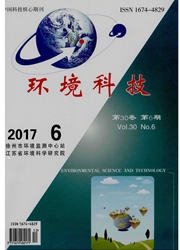

 中文摘要:
中文摘要:
我国氮氧化物(NOx)减排任重道远,水泥行业是第3排放大户,江苏科行集团和清华大学承担了水泥窑炉脱硝国家科技支撑计划重点项目,解决选择性非催化还原(SNCR)脱硝技术在水泥窑炉应用的关键问题,开发具有自主知识产权的SNCR脱硝成套技术。SNCR工艺被认为是目前可用于水泥工业回转窑上的最好技术,水泥窑炉SNCR工艺必须具备一定的条件。SNCR系统烟气脱硝过程是由4个基本过程完成,影响SNCR脱硝效率的主要因素有:温度区间、停留时间、氨氮比。水泥窑SNCR脱硝难点在于环境,气氛对钙基颗粒的作用也有影响。
 英文摘要:
英文摘要:
Nitrogen oxides (NOx) emissions reduction is a mission of shoulder heavy responsibilities in China, with emissions in the cement industry as the third largest amount. The people in Tsinghua University and Jiangsu COHEN Group assumed the key project of national scientific., and technological support plan on denitrification technology for cement kiln, solved the key issues of the selective non-catalytic reduction (SNCR) technology in the cement kilns, and developed a set of SNCR technologies for DeNOx with independent intellectual property. SNCR process is currently considered to be the best technology for rotary kiln in cement industry, while SNCR process for cement kilns should possess a certain conditions. In SNCR system, flue gas denitrification is completed by four basic processes. The main factors affecting SNCR denitrification were temperature range, resident time, and NHJNOx. The difficult point of the SNCR denitrification for the cement kiln was the environment, and the effect of atmosphere on calcium-based particles also had affect on denitrification efficiency.
 同期刊论文项目
同期刊论文项目
 同项目期刊论文
同项目期刊论文
 期刊信息
期刊信息
